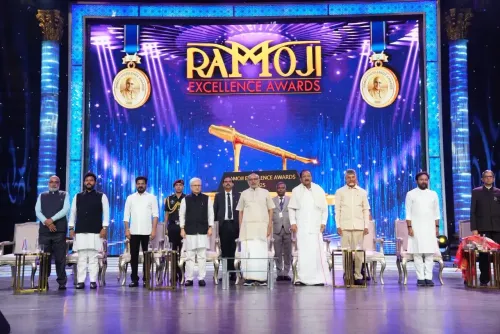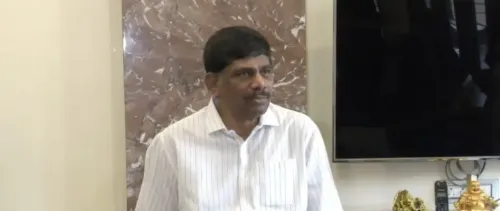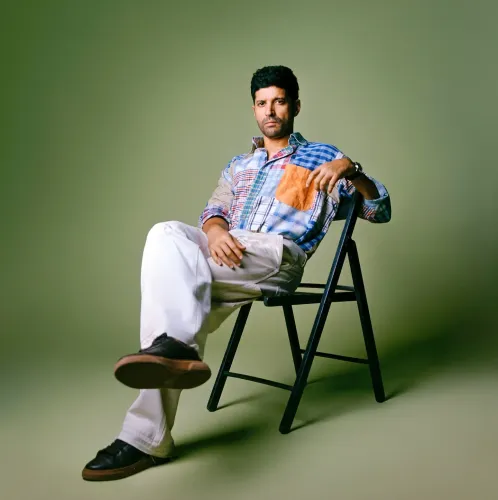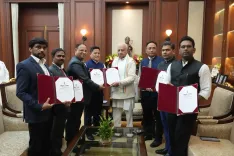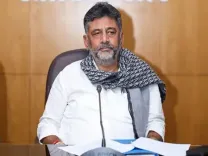Should the Creamy Layer Be Excluded from Reservations for SCs?
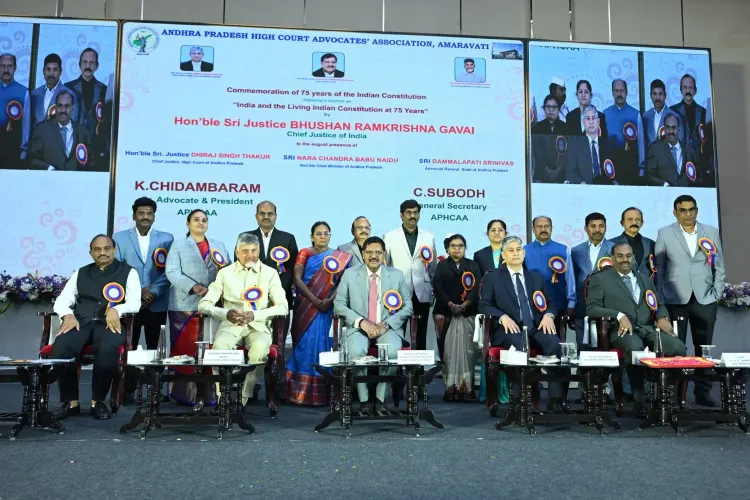
Synopsis
Key Takeaways
- The creamy layer should be excluded from SC reservations.
- Equality must consider socio-economic disparities.
- Sub-classification can help address under-representation.
- True equality goes beyond mere theoretical frameworks.
- Dr Ambedkar's vision remains central to constitutional discussions.
Amaravati, Nov 16 (NationPress) Chief Justice of India BR Gavai expressed his continued belief on Sunday that the creamy layer ought to be excluded from the reservations granted to Scheduled Castes. He pointed out that the child of an IAS officer should not be considered equal to the child of a poor agricultural worker regarding reservation benefits.
Speaking at a keynote address titled ‘India and the Living Indian Constitution at 75 Years’ during a program organized by the Andhra Pradesh High Court Advocates Association celebrating the 75th anniversary of the Indian Constitution, he elaborated on last year’s judgment from a seven-judge bench concerning the sub-classification of Scheduled Castes.
“In a panel of seven judges, six of us concluded that sub-classification is permissible if a state government identifies certain sections of Scheduled Castes that are underrepresented, allowing special treatment for those who lack representation,” he stated.
Justice Gavai further asserted that the concept of the creamy layer, as established in the Indra Sawhney judgment regarding Other Backward Classes, should also apply to Scheduled Castes. Despite facing significant criticism for this stance, he maintained that judges generally do not need to justify their decisions. “I still have a week left in office,” remarked Justice Gavai, who is set to retire on November 23.
“If an IAS officer rises to the position of chief secretary and his child receives exceptional education in metropolitan areas like Hyderabad or Bangalore, can the child of a poor agricultural laborer from a village, despite both being from Scheduled Castes, be treated the same? My answer is no. This would undermine equal opportunities. Three other judges agreed with my perspective, thus emphasizing that equality must be tangible, not merely theoretical,” he explained.
Quoting Dr BR Ambedkar, he remarked that equality devoid of liberty diminishes the motivation for individuals to strive for excellence, while liberty alone could lead to the dominance of the powerful over the vulnerable. The trio of equality, liberty, and fraternity is essential for advancing social and economic justice in the nation.
Justice Gavai shared that his inaugural event as the 52nd CJI was held in his hometown, Amravati in Maharashtra, and as he nears the conclusion of his tenure, his final engagement took place once again in Amaravati, Andhra Pradesh.
“Having come from a modest background and attended a municipal school in a semi-slum area of Amravati, I reached the apex of the judiciary and contributed, albeit humbly, to nation-building solely due to the Constitution of India,” stated BR Gavai.
He acknowledged that the Constitution has enabled India to have two Presidents from the Scheduled Castes, with the current officeholder being a woman from the Scheduled Tribe.
He emphasized that Dr Ambedkar’s speeches during the drafting of the Constitution are crucial readings for all law students.
Justice Gavai affirmed that the Indian Constitution is a dynamic document, asserting that Dr BR Ambedkar envisioned it as an evolving, organic entity. Article 368 allows for constitutional amendments, reflecting this adaptability.
“While some criticize the amendment powers as too permissive, others argue that certain amendments need ratification from half the states and a two-thirds parliamentary majority, complicating the amendment process,” he noted.
He concluded that while amendments addressing socio-economic issues are relatively straightforward, modifications involving the fundamental tenets of the Constitution, such as judicial independence and the federal structure, are not easily undertaken.

